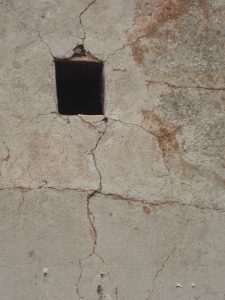I have worked with several serious offenders during my career as a mental health nurse, some of whom had committed violent murders while experiencing extreme psychological disorder.

Last year, Valdo Calocane tragically killed three people and seriously injured three others in Nottingham city centre. At the recent trial he was found guilty of manslaughter on the grounds of diminished responsibility and sent to a high secure special hospital. I feel very strongly that handing down a hospital order was the only appropriate option. To charge him with murder and send him to prison would be to ignore his serious mental health issues which have been well documented and appear to be of a severity sufficient to account for his fatally violent actions.
Of course, the whole situation is tragic – for those who lost their lives and for their families, but also for Valdo Calocane and his family. Words circulating about him in the media, such as ‘evil‘, ‘monster‘ and ‘coward’, are entirely misplaced and display a profound ignorance of the nature of severe psychological disorder, which frequently includes deeply entrenched delusional beliefs and command hallucinations.
I don’t subscribe to a medical model to explain delusions and hallucinations as, in my experience, you can always find a rational explanation in the person’s usually traumatic biography – if you’re prepared to look deeply enough. But, for the immediate practical purposes of where to place someone who has acted violently in response to such severe disorder, society can currently offer only two alternatives: detention in a secure hospital or prison. To me, it’s indisputable that Valdo Calocane does not belong in prison. Even if he were sent there, he would only end up being transferred to a secure hospital at some point in response to his mental health issues.
It seems to me that the public, egged on by the media, has a very contradictory attitude towards severe psychological disorder. On the one hand, they complain that there had been insufficient input from mental health services and that a more robust effort to engage with him could have prevented these tragic deaths, thus acknowledging that he killed while experiencing severe mental health issues. On the other hand, they want to label him as evil and demand that he is charged with murder and sent to prison, thus denying that he killed while suffering severe mental health issues.
You can’t have it both ways. If we allow for diminished responsibility as a mitigating factor in our legal system, and if it is established that an individual has committed acts of violence while suffering from diminished responsibility due to severe psychological disorder, then a hospital order is the only credible option when it comes to sentencing. The media know this, but they also know they can sell far more papers with salacious headlines about evil monsters. It’s truly shameful, and not without consequence.
Valdo Calocane’s case has now been referred back to the Attorney General to have his sentence reviewed, following complaints by the families of the victims that the sentence was ‘too lenient‘ and that he has ‘got away with murder‘. This is nonsense. Indefinite detention in a high secure hospital is not getting away with anything.
Calls for a prison sentence aren’t coming from a rational place but from a desire for vengeance and punishment which relies on the objectification of the perpetrator as an evil monster – even when the influence of severe psychological disorder and diminished responsibility has been well established. While this may be understandable as an immediate response of the grieving families, it cannot form the basis of a civilised response.
While we have undoubtedly come a long way in the past decade or so in talking about depression, anxiety, and suchlike – phenomena that most people can relate to in some way – it seems to me that at the severe end of the mental health spectrum we are still stuck in the Dark Ages. The schizophrenia label continues to be invoked without question, even though it’s completely redundant when it comes to explaining and describing psychotic phenomena. So, whilst Valdo Calocane’s violent behaviour can be explained sufficiently, in my view, by describing the kinds of phenomena he was experiencing, such as paranoia and possibly command hallucinations – no doubt in response to extreme ongoing stress and probably in relation to past trauma – he is nevertheless ‘diagnosed‘ with ‘paranoid schizophrenia‘.
Even those among us who do not believe that this so-called diagnosis is based on any real medical evidence find ourselves forced to accept it as the only means of getting someone like Valdo Calocane into any sort of therapeutic environment, rather than a purely custodial one. Although a hospital order is the only reasonable option in his case, it is still a source of great sadness to me that this means he will have to submit to this diagnosis, which will ultimately only impede his recovery in the long term.
Nevertheless, it’s all we’ve got at this point in time, and I can only hope that Valdo Calocane receives psychological and emotional help, as well as the anti-psychotic medication that will likely be mandatory. I hope he can recover in spite of this unhelpful archaic ‘diagnosis‘, which paradoxically is currently his only route to any form of therapy. Therapy rather than punishment is what is needed in his case, though due to the tragic and fatal consequences of his actions, this can only be offered within a high-secure environment.
Lin Bigwood is a retired mental health nurse, trade unionist, whistleblower, and one of the founders of Asylum magazine
This is a Sample Article from the Spring 2024 issue of Asylum Magazines (31.1). To read more, Subscribe to Asylum Magazine.
